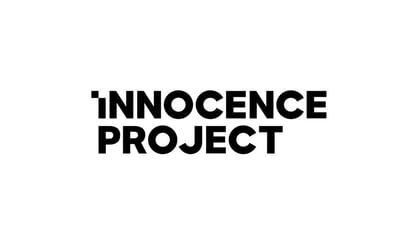
Innocence Project Inc
The Innocence Project works to free the innocent, prevent wrongful convictions, and create fair, compassionate, and equitable systems of justice for everyone. Our work is guided by science and grounded in anti-racism.
Since 1992, we have helped free or exonerate hundreds of wrongfully convicted people. The cases here are considered closed and reflective of Innocence Project’s exonerated clients only. In the last 30 years, exoneration cases have exposed the very real shortcomings of the American legal system.
Since 1973, at least 190 people have been exonerated from death row in the U.S., according to the Death Penalty Information Center (DPIC). A 2014 study estimated that at least 4% of those sentenced to death are innocent. These numbers don’t demonstrate the full scope of the impact that the death penalty has on the problem of wrongful conviction as the threat of the death penalty causes innocent people to plead guilty and induces false testimony from witnesses.
The Innocence Project currently represents people on death row with strong claims of innocence and supports coalitions working to ban the use of the death penalty. Virginia, Colorado, and New Hampshire became the most recent states to outlaw capital punishment, but 27 states, the federal government, and the U.S. military still allow the use of this arbitrary and brutal punishment.
Financials
Programs
Restoring Freedom
Since the introduction of DNA testing in the 1980s, we have pioneered the use of this groundbreaking technology to scientifically prove innocence. In cases where DNA evidence is absent, we help secure the freedom of wrongfully convicted people by presenting new — and equally convincing — evidence of innocence (which can include eyewitness misidentification, jailhouse informant testimony, false confessions, official misconduct, misapplied forensic science, and more).
To date, we have helped free or exonerate more than 200 individuals, most of whom are from communities of color that tend to be more heavily policed, face persistent discrimination, experience poverty at higher rates, and are confronted with many more challenges in the criminal legal system. Altogether, these people have spent more than 3,600 years behind bars.
In addition, we help wrongfully convicted people rebuild their lives post-release with the support of our social work department. With assistance from our Exoneree Fund, we provide trauma-informed re-entry support, working closely with those freed and exonerated to ensure that they have safe and comfortable housing, access to health care, meaningful employment opportunities, and more. We also work actively to ensure compensation for wrongfully convicted people through the passage of laws.
Transforming Systems
By tackling the flaws within our criminal legal system, we are working to eliminate the failings that lead to wrongful convictions and disproportionately harm communities of color, especially Black people.
Working alongside policymakers, supporters, and partner organizations, we have spearheaded federal- and state-based legislative changes that help to reveal wrongful convictions. These initiatives include improving access to post-conviction courts, strengthening police and prosecutorial accountability to prevent wrongful conviction, compensating wrongly convicted people, and a range of other reforms — including taking aim at practices that enable misidentifications, unreliable informant testimony, coerced guilty pleas, and false confessions. Our efforts have led to the passage of more than 200 transformative state laws and federal reforms.
We also work to strengthen the standards that govern the use of science in criminal legal systems. We urge system actors — including judges, forensic experts, and prosecutors — to examine evidence for scientific accuracy and reliability, as well as to consider the broader civil rights implications of harmful surveillance and investigative technologies.
Advancing the Movement
Our community of partners, advocates, and supporters is central to our work in advancing criminal and racial justice.
Together with other innocence organizations, we work to broaden the reach of the innocence movement. We are the headquarters of the Innocence Network, a coalition of more than 70 independently funded organizations that provide investigative support, legal representation, and assistance to people with claims of innocence in 50 states and 12 countries outside of the U.S. Innocence Network member organizations have collectively exonerated more than 750 wrongfully convicted people since the Network was founded in 2005.
Through our digital engagement efforts, Speakers Bureau, and Innocence Project Ambassadors, we educate the public on wrongful conviction and grow support for our fight for a more just criminal legal system. Additionally, we continue to quantify the phenomenon of wrongful conviction and collaborate closely with researchers on studies and initiatives that can help better inform our innocence work.